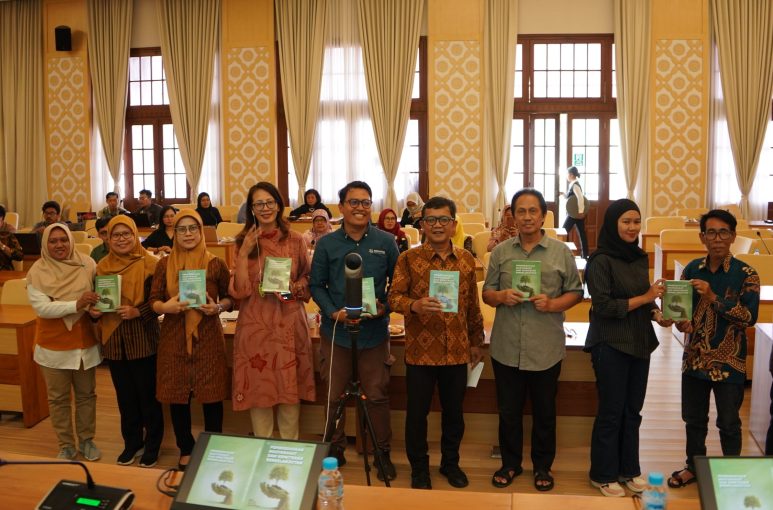
Yogyakarta, July 17, 2025 — Universitas Gadjah Mada (UGM), through the Faculty of Social and Political Sciences (FISIPOL), officially held the soft launching of the book “Community Empowerment and Sustainable Partnership: Experiences and Reflections of Working with Communities in the Special Purpose Forest Area (KHDTK) Blora–Ngawi” on Thursday afternoon at Multimedia Room 1, UGM Rectorate Building. This book serves as a reflective and scholarly documentation of UGM’s long journey in community-based forest management since 2016.
In his remarks, Dr. Arie Sujito, Vice-Rector for Student Affairs, Community Service, and Alumni of UGM, as well as one of the book’s editors, emphasized that this publication is part of an effort to preserve forests not only as conservation areas, but also as living spaces of empowerment for communities, academics, researchers, and partners.
The book not only records successful community empowerment practices implemented in the KHDTK Blora–Ngawi area but also highlights ecological challenges, unequal access to resources, and the strength of social solidarity that emerged from the field. The narratives presented reflect a paradigm shift from exploitative approaches to collaborative management grounded in social and ecological justice.
Its content offers a range of innovative approaches, from biophysical land capability analysis, agroforestry practices, community-based alternative economic development, to ecofeminist perspectives that highlight the role of women in forest management. The event also became an important forum to strengthen cross-sector collaboration among academics, government, civil society, and the private sector, in line with the values of the Tridharma of Higher Education.
This initiative directly resonates with several Sustainable Development Goals (SDGs), particularly SDG 1 (No Poverty), SDG 5 (Gender Equality), SDG 13 (Climate Action), and SDG 15 (Life on Land). By reinforcing local institutions, engaging youth and women, and applying forest management practices rooted in science and local wisdom, KHDTK UGM has evolved into a living laboratory for empowerment and conservation with a visionary outlook.
The book’s launch serves as a reminder that sustainability is not solely about environmental preservation, but also the result of democratic, equitable, and trust-based social processes. Moving forward, UGM hopes this initiative will inspire similar practices in other regions while enriching the national discourse on fair and sustainable natural resource governance.
